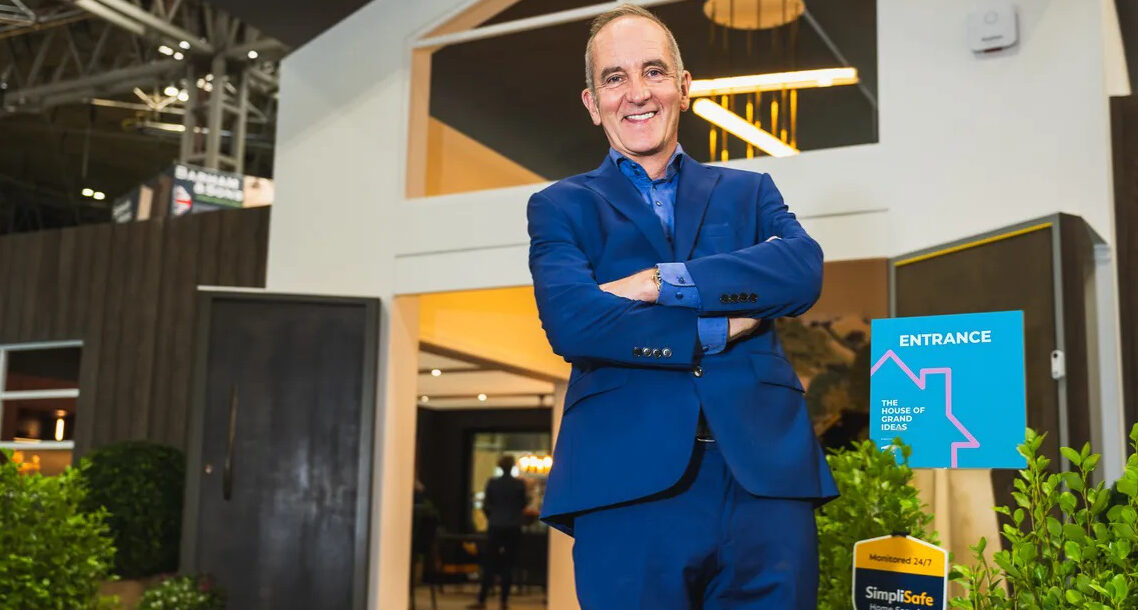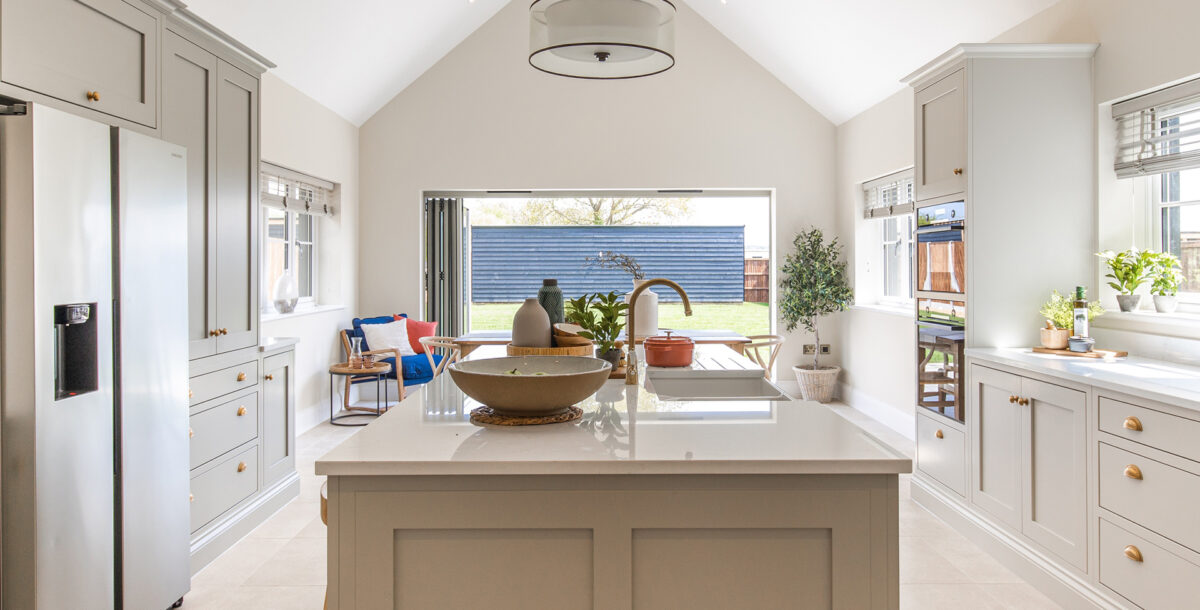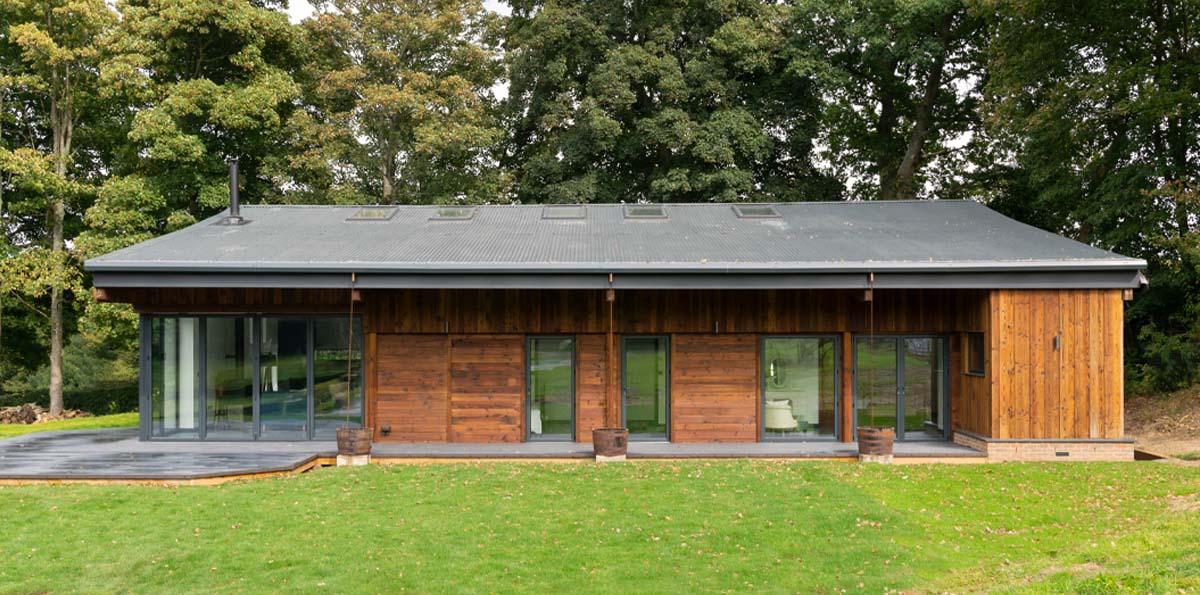The Boiler Upgrade Scheme is failing to deliver
Take-up of the government's green energy policy has been disappointingly low
A House of Lords Select Committee inquiry into the government’s Boiler Upgrade Scheme (BUS) has concluded that the eco-initiative is failing to deliver on its objectives.
The scheme, which launched in May 2022, pledged £450 million to kick-start the heat-pump industry in England and Wales, offering grants of £5,000-£6,000 to reduce the cost of installation for homeowners. But take up has been disappointingly slow.
In a letter sent to Lord Callanan, Parliamentary Under Secretary of State for Energy Security and Net Zero, the Environment and Climate Change Committee (ECCC) warned that if the current take-up rate continues, only half of the £450 million boiler upgrade budget will be used.
It went on to say that the government’s 2028 target of 600,000 installations per year is very unlikely to be met because ‘a healthy market of installers and manufacturers will not be in place in time to implement low-carbon heating policy measures smoothly’.
Since launching the initiative nine month’s ago, only a third of the government’s annual BUS budget has been claimed and only 50,000 heat pumps are being installed per year.
‘The transition to low-carbon heat is fundamental in the path to net zero, given that 17% of the UK’s greenhouse gas emissions come from our homes,’ said Baroness Parminter, Chair of the ECCC.
‘The government must quickly address the barriers we have identified to a successful take up of the Boiler Upgrade Scheme in order to help grow the [use] of low-carbon heating systems,’ she continued. ‘It is vital they do so if we are going to meet our Net Zero ambitions.’
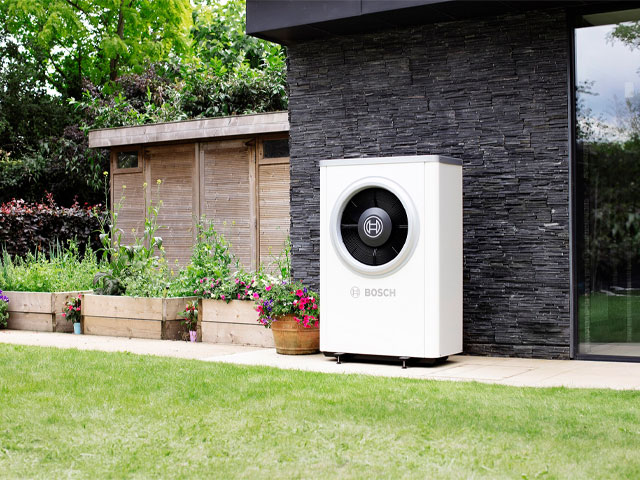
A Worcester Bosch heat pump
Barriers to the Boiler Upgrade Scheme
Currently, an air-source heat pump costs from £8,000-10,000, and a ground-source heat pump from around £13,000.
The Boiler Upgrade Scheme aims to ease this financial burden by making £5,000 grants available for the installation of air-source heat pumps and biomass boilers, and £6,000 for ground-source heat pumps. But for many households, the grant is not enough.
‘That upfront cost is a real issue, and policy has to focus on addressing that,’ said Stew Horne, head of policy at The Energy Savings Trust, speaking to the BBC.
In Scotland, a grant of £7,500 is available for heat pump installation, with a rural uplift of £1,500. An interest-free loan is available to finance the rest of the cost.
The number of qualified heat-pump installers is also an issue. According to Nesta, an innovation agency for social good, there are only 3,000 heat pump engineers in the UK, but some 27,000 will be needed to meet the government’s 2028 target. There are currently 130,000 registered gas heating engineers.
Plus, low-carbon heating alternatives have not been well publicised. The government’s own research revealed that, in autumn 2022, 80% of people in the UK did not know what a heat pump was. The ECCC also found that promotion of the BUS has been inadequate.
A government spokesperson told the BBC: ‘We’ve recently launched a marketing campaign to further increase public awareness and will consider options to ensure our targets are met.’

A Daikin heat pump
ECCC recommendations
The ECCC is calling for the government to take swift action to prevent the failure of the BUS. Recommendations include:
- Providing clarity on feasible options for low-carbon home heating through policy, public communications and advice for homeowners
- Rolling over the remainder of the budget from the first year of BUS, estimated to be around £75m, into subsequent years
- Establishing a review to consider extending the scheme, which is currently due to end in April 2025
- Changing Energy Performance Certificates so that flawed EPC recommendations cease being a barrier to BUS eligibility, and certificates reward homeowners for making the switch to low-carbon heating
- Recognising the role of independent retrofit coordinators in helping households navigate low-carbon heating installations
- Relaxing the requirement around Permitted Development Rights to site a heat pump a certain distance from neighbouring properties
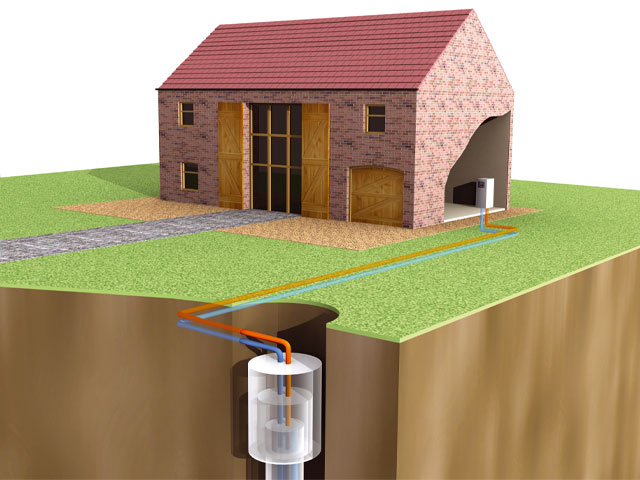
A ground-source heat pump. Illustration: Worcester Bosch
Government and industry responses
‘Heat pumps will undoubtedly play an important role in the decarbonisation of heating British homes, but there is still work to be done to overcome barriers to installation for consumers,’ says Richard Halsey, Innovation Director at Net Zero innovation centre Energy Systems Catapult.
‘We can change this,’ he continues. ‘We can start by helping consumers navigate the transition to a heat pump by ensuring we provide them with clear and easy to understand information. Our latest guide, Heat pump talk, aims to help installers put the minds of customers at ease and do-away with common misperceptions by demonstrating what a real-world heat-pump installation journey looks like.’
‘We must bring more installers on board and the Chartered Institute of Plumbing and Heating Engineering (CIPHE) celebrates the efforts of the Department for Business, Energy and Industrial Strategy (BEIS) in this area,’ says Kevin Wellman, CEO of CIPHE.
‘Without more qualified professionals, current installers will need to work 25-hour days, eight times a week to hit Net Zero targets,’ he continues. ‘As such, government and industry must continue working together to attract new recruits while promoting ongoing training for those already in the industry. Quantity must be balanced with quality.’

A new housing development with heat pumps. Photo: Blake Wheeler from Unsplash
Private sector heat pump initiatives
Halifax, part of the Lloyds Banking Group, has launched a new pilot scheme with Octopus Energy to help customers replace or upgrade their heating with a low-carbon system. Through the existing Green Living Reward portal on the Halifax website, borrowers using a mortgage, remortgage or further advance to finance a heat pump installation can arrange it with Octopus.
Based on Octopus’ costs, an air-source heat pump can be installed from £8,000. The £5,000 BUS grant brings the cost down to £3,000, and with the additional £1,000 cashback available through the Halifax Green Living Reward scheme, a new heat pump could be cheaper than a gas boiler.
‘We’re always looking for ways to help people save money while accelerating the shift to a clean energy future,’ says Rebecca Dibb-Simkin, chief product officer at Octopus Energy. ‘The pilot comes at a crucial time for consumers facing a dual climate and cost of living crisis. It no longer needs to be a question of prioritising one over the other – heat pumps are greener than gas boilers, and thanks to Octopus, the government and Lloyds, they can be cheaper too.’


